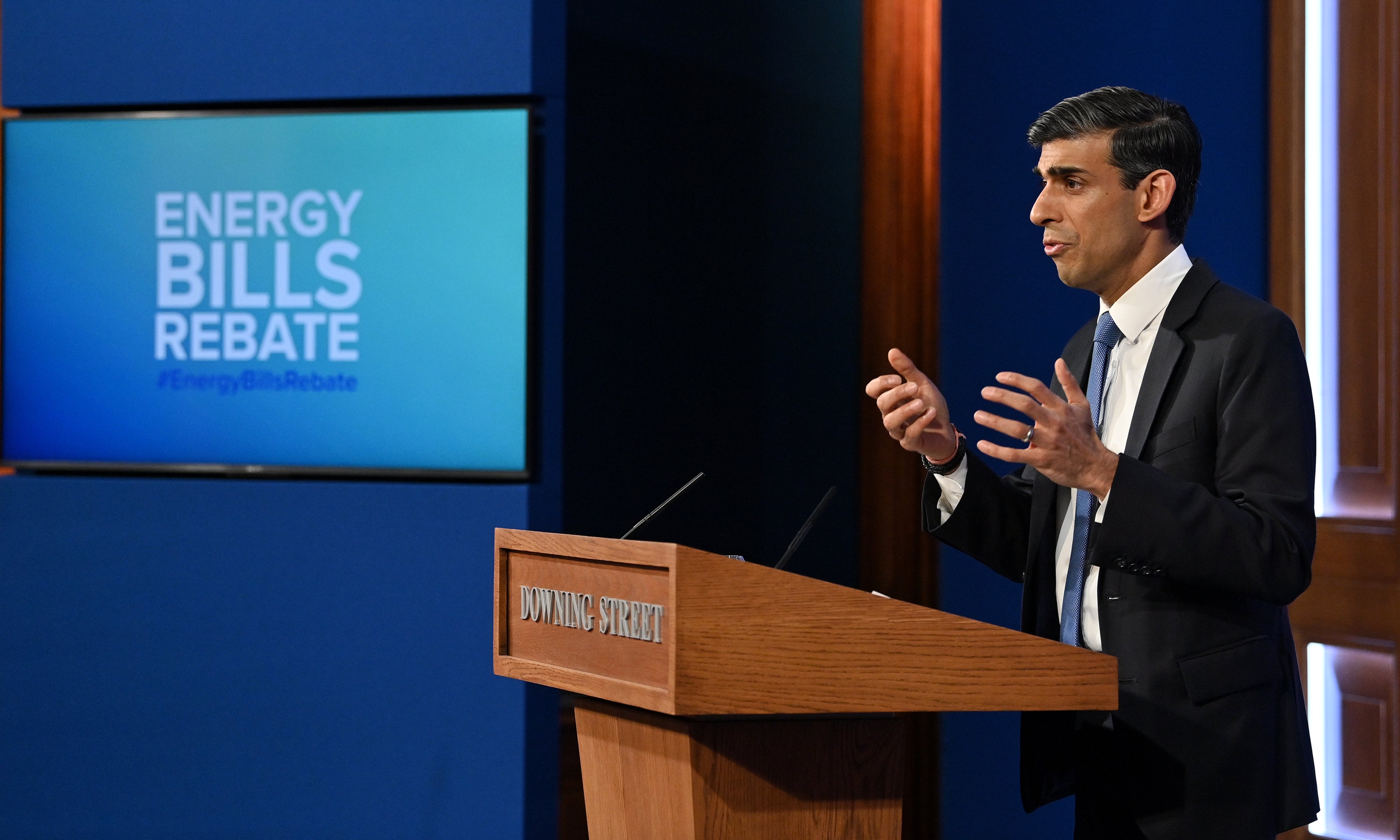The Independent's journalism is supported by our readers. When you purchase through links on our site, we may earn commission.
Energy companies make billions while families are shivering – we need to tax one to help the other
There should be a windfall tax on those producers together with measures that treat energy as an essential public good


On Wednesday, we had the government’s plan on “levelling up” Britain.
Then, on Thursday, struggling families learnt that they’ll be hit with an average £700 rise in their energy bills – while the boss of one of the UK’s biggest energy companies says the energy crisis has turned his company into a “cash machine” with huge benefits for shareholders; and another reports a 14-fold increase in profits. Some levelling up.
When the energy price cap rose by 12 per cent last October, the number of households in fuel poverty rose to 4.5 million. This latest rise pushes that up to more than 6 million. And this is just one of the many hits to people’s pockets, alongside rising food prices, council tax increases and a rise in national insurance payments.
Yet until yesterday, ministers have sat on their hands watching this crisis get worse and worse, providing little reassurance for desperately worried families.
Some members of the Tory party put forward the “solution” of a return to fracking and dropping the environmental levy on energy bills – moves that would simply help fuel the climate emergency, while having zero impact on gas prices. This is a global crisis and any gas exploited in the North Sea would be sold on international markets – as is happening now.
Scrapping the environmental and social levies (which actually help to tackle fuel poverty) would shave very little off household fuel bills. So Tory MPs’ claim that high bills are the result of paying for the clean energy transition is simply untrue and I’m glad the chancellor is not kowtowing to their demands.
Renewables are not responsible for the current crisis. In fact, they’re the solution, as the head of the International Energy Agency acknowledged.
We are in this position, dangerously exposed to a volatile market, because of government inaction in the past decade: when the Tories decided to “get rid of all the green crap”, slowing down the essential transition away from fossil fuels and scrapping energy-efficiency measures like insulation, which would have cut demand and made us less dependent on gas for heating our homes.
That short-sightedness has impacted us all, adding around £2.5bn to our heating bills over the past decade. And it’s meant we’re facing the full force of a global energy crisis, when we could have had more homegrown renewable energy from wind, solar and waves – and more investment in storage.
The solution lies not in a rapid U-turn to the fossil fuel era, but in rapidly speeding up the transition to energy efficiency and renewables so we address the climate emergency and make ourselves less vulnerable to global price rises.
So what of the chancellor’s response to the soaring energy bills that people face now?
The £200 rebate scheme he announced in the Commons is a short-term sticking plaster, introduced in a last-minute panic. Even combined with the council tax rebate, it will cover only half the price increase facing millions of families.
What’s more, already struggling households won’t receive the bill rebate until October – and will have to pay it back over the next five years, regardless of income or the cost of gas. It is based on the assumption that global prices will drop in the medium term, which is a huge gamble. And it’s poorly targeted, so doesn’t help those in most need.
The chancellor had nothing to offer in response to the root cause of the problem: our vulnerability to a volatile global market combined with high demand because we have some of the leakiest homes in western Europe.
His boast of £3bn being spent to insulate half a million homes is laughable when there are more than 27 million in the UK, the majority of them in the lowest energy efficiency bands.
To keep up to speed with all the latest opinions and comment sign up to our free weekly Voices Dispatches newsletter by clicking here
When oil and gas companies are making billions in profits and families are shivering because they can’t afford to heat their homes, we should be taxing one to help the other. There should be a windfall tax on those producers together with measures that treat energy as an essential public good.
More importantly, we urgently need a nationwide plan to insulate our homes to cut energy use, keep people warm and reduce fuel bills. At the same time, this would create thousands of good, secure jobs across the country.
High gas prices will be with us for some time to come. We need to leave fossil fuels behind us and in the ground as soon as possible and start creating a carbon-free energy system for the future.
Join our commenting forum
Join thought-provoking conversations, follow other Independent readers and see their replies
Comments